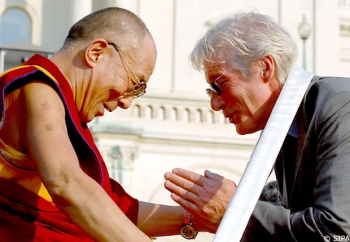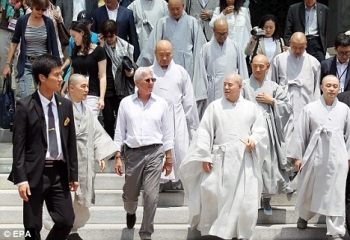Julia Roberts’s enigmatic smile is perhaps one of the best highlights of the film Pretty Woman. But for a lot of us, Richard Gere’s charm is what made the film worthwhile (even after watching the film about . . . six times. Maybe seven.) With his shy smile and gray-dusted hair, Gere stole the hearts of many women during the ‘90s, and continues to do so today. What to do? Pretty things walking down the street are always fun to look at.
Besides being one of Hollywood’s best-known stars, Richard Gere has been involved in Buddhism since reading about the Dharma and meeting a teacher. Now a popular celebrity Buddhist, he acts as a spokesperson for the Tibetan cause, and regularly donates to Buddhist undertakings.
Gere was born in Philadelphia on 31 August 1949. He was a philosophy major at the University of Massachusetts, but dropped out to pursue a career in acting. Performing on stage gave him a lot of experience, but his on-screen break came in 1977 in the film Looking Good for Mr. Goodbar. His rise to fame was unstoppable, and Gere has delivered box office hits such as An Officer and a Gentleman, American Gigolo,and my personal favorite, Hachi: A Dog's Tale.
















